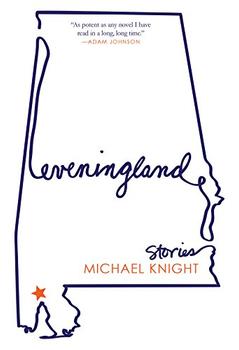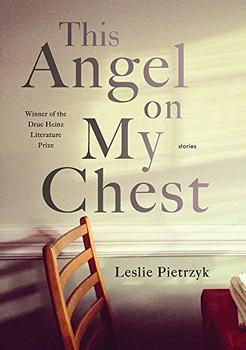Summary | Excerpt | Reviews | Beyond the book | Read-Alikes | Genres & Themes | Author Bio

Stories
by Mary MillerFormer Michener Fellow Mary Miller's Always Happy Hour, her second collection of short fiction, follows similar protagonists in each story: female millennials in various states of ennui.
There are sixteen stories included, many of which have appeared in literary magazines. Every story focuses on a young woman struggling with relationships. The collection opens with "Instructions," which sets a tone that remains constant throughout. A boyfriend has left the narrator a set of coy instructions as she apartment-sits in his absence. Perhaps the puzzle-instructions are metaphoric, meant to mirror the woman's confusion about the boyfriend, and the relationship. Angst reverberates here, but the woman's antagonist is not her boyfriend, as she struggles for personal animation, most of which is internal. In all of these stories, in fact, the men these women encounter – and the women too – do not arrive as antagonists. Instead the women dissected in each story are both protagonist and antagonist.
The stories that follow – "The House on Main Street," "Proper Order," "Dirty," and others – speak to the duality of human nature, dissect those who flounder about outside in the 9-to-5 world, and examine real-life situations. Often Miller's language (regularly R-rated) and observations strike elemental truths, as when one protagonist notes, "... how I wrote things that shouldn't have been written and how it had taken me years to figure out the difference between writing the truth and writing something explicit and ugly that only looked like the truth." One of the more moving stories, "Big Bad Love," finds the protagonist working as an aide in a home for homeless and abused children. It becomes a meditation on an unsolvable problem.
All of the stories in Always Happy Hour are set in the south, in sometimes indefinite places, sometimes identified. Whether in Mississippi, Texas or elsewhere below the Mason-Dixon line, landscape descriptions are ambiguous and play a minimal part in story structure. The weather's warm, the houses are good, or bad. And the milieu is inferred to be academic, or artistic, or on the fringes of those environments. Supporting characters – except perhaps the female lottery winner, Shelly, in "First Class" – are sketched rather than fully fleshed out, a method applied to sisters and mothers, fathers and more than one boyfriend. Dialog is American television standard, little distinctively regional finding its way to the page. Points of view are first person and third, an exception being the intriguingly well-accomplished "Love Apples" which uses the difficult to render second person point of view.
Miller's collection is sixteen interpretations of millennial feminism, laced with drugs and depression, sex and anxiety. There's a touch of Freud's What does a woman want? driving each narrative, but conversely each protagonist claims control of her life in spite of her (sometimes) passivity. Miller's writing can sparkle with insightfulness – "When you leave me, you won't really be leaving me, I think, you'll be leaving the girl you thought I was, who was kind of like me, but not."
This isn't a book to be read in one sitting. There's a certain bleakness to it. There's also a certain vexation, a desire to grab the protagonist, shake her, and yell snap out of it! But that command is useless, of course, for no one can change on demand. There's little in these stories about family and how families are created and survive, and even less about neighbors and community, there's nothing at all overt about human spirituality or the world we live in and its environment. There is only erudite existentialism and struggling feminism. Gen-X'ers are Always Happy Hour's most likely audience.
![]() This review was originally published in The BookBrowse Review in January 2017, and has been updated for the
January 2018 edition.
Click here to go to this issue.
This review was originally published in The BookBrowse Review in January 2017, and has been updated for the
January 2018 edition.
Click here to go to this issue.

If you liked Always Happy Hour, try these:

by Michael Knight
Published 2018
These stories, told with economy and precision, infused with humor and pathos, excavate brilliantly the latent desires and motivations that drive life forward.

by Leslie Pietrzyk
Published 2017
Winner of the 2015 Pitt Drue Heinz Literature Prize.
Your guide toexceptional books
BookBrowse seeks out and recommends the best in contemporary fiction and nonfiction—books that not only engage and entertain but also deepen our understanding of ourselves and the world around us.